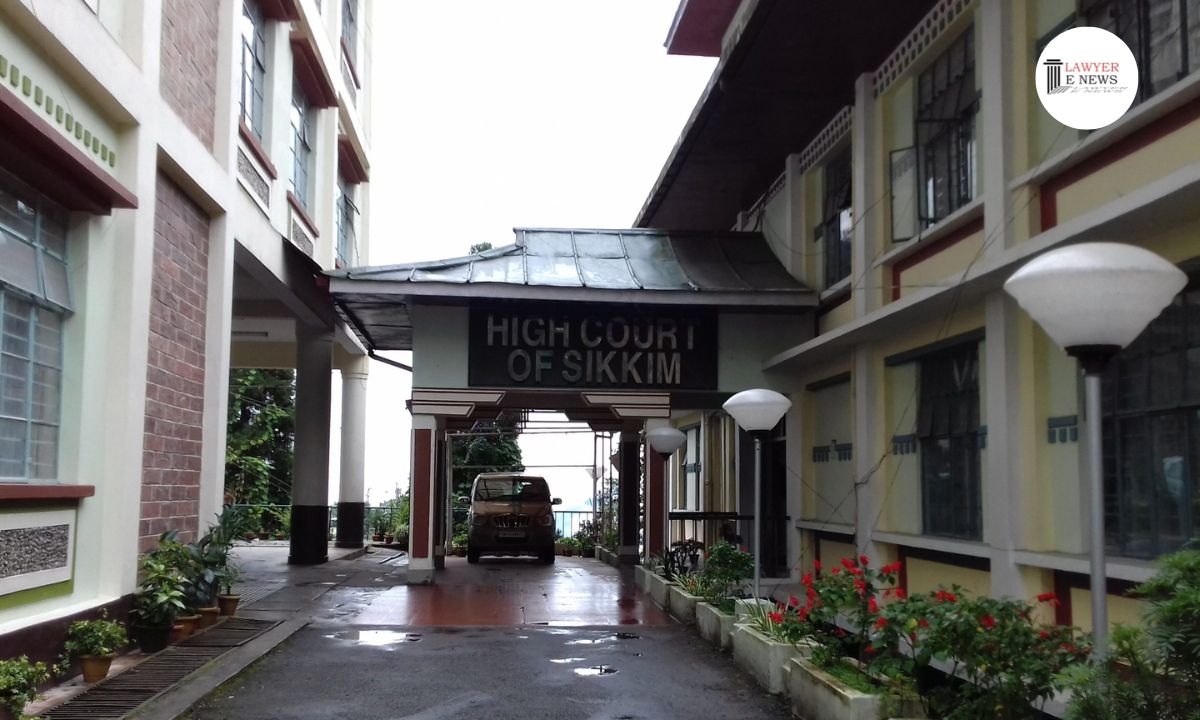-
by sayum
14 February 2026 2:22 PM



Judge emphasizes that incarceration and right to choice of counsel constitute sufficient cause for delay.
The High Court of Sikkim has condoned a 388-day delay in filing an appeal against the conviction of Bidhan Trikhatri and others under Sections 454 and 380 of the Indian Penal Code. The bench, led by Justice Meenakshi Madan Rai, highlighted the importance of a liberal and justice-oriented approach in such cases, recognizing the difficulties faced by the incarcerated appellants in engaging private counsel.
In August 2022, Bidhan Trikhatri and his co-accused were convicted by the Chief Judicial Magistrate, Gangtok, for housebreaking and theft. They were sentenced to rigorous imprisonment for five years under Section 454 IPC and simple imprisonment for three years under Section 380 IPC, along with fines. Due to their incarceration, the appellants faced significant challenges in securing private legal representation, which resulted in a delay of over a year in filing their appeal.
The court acknowledged the appellants’ difficulties in engaging private counsel while incarcerated. Initially assigned Legal Aid Counsel, the appellants chose to seek private representation, a process managed by the wife of one of the appellants. This led to delays but was deemed a valid reason for seeking condonation. Justice Rai noted, “If they are not satisfied with the services of a Legal Aid Counsel and they seek to engage a private Counsel the Courts cannot stand in their way, in their quest for justice as they perceive it.”
The court referred to various Supreme Court precedents emphasizing a liberal approach to condoning delays. Justice Rai remarked, “The expression ‘sufficient cause’ must receive a liberal construction so as to advance substantial justice and that generally delays in preferring appeals are required to be condoned in the interest of justice where no gross negligence or deliberate inaction or lack of bona fides is imputable to the party seeking condonation of delay.”
The judgment underscored the principle that courts should prioritize substantial justice over procedural technicalities. Justice Rai highlighted the mitigating circumstances faced by the appellants, including their incarceration and reliance on the wife of one appellant to engage private counsel. She reiterated that “mere technicalities ought not to impede the path of justice.”
The court extensively discussed various Supreme Court judgments that advocate a pragmatic and justice-oriented approach in condoning delays. Notably, it referred to the cases of Sheo Raj Singh, State of Nagaland v. Lipok Ao, and others, to emphasize that substantial justice should prevail, particularly in criminal matters where the liberty of individuals is at stake.
Justice Meenakshi Madan Rai stated, “The course of justice ought to be advanced and mere technicalities ought not to impede the path of justice.” She further added, “In assessing what constitutes ‘sufficient cause,’ a liberal approach must be adopted to ensure substantial justice is achieved.”
The High Court of Sikkim’s decision to condone the delay in filing the appeal reflects the judiciary’s commitment to ensuring that justice is not thwarted by procedural technicalities. By setting aside the Sessions Judge’s order and allowing the criminal revision petition, the court has reinforced the importance of a fair trial and the right to legal representation of one’s choice. This judgment is expected to influence future cases, emphasizing that substantial justice should guide judicial decisions, particularly in criminal matters.
Date of Decision: June 25, 2024
